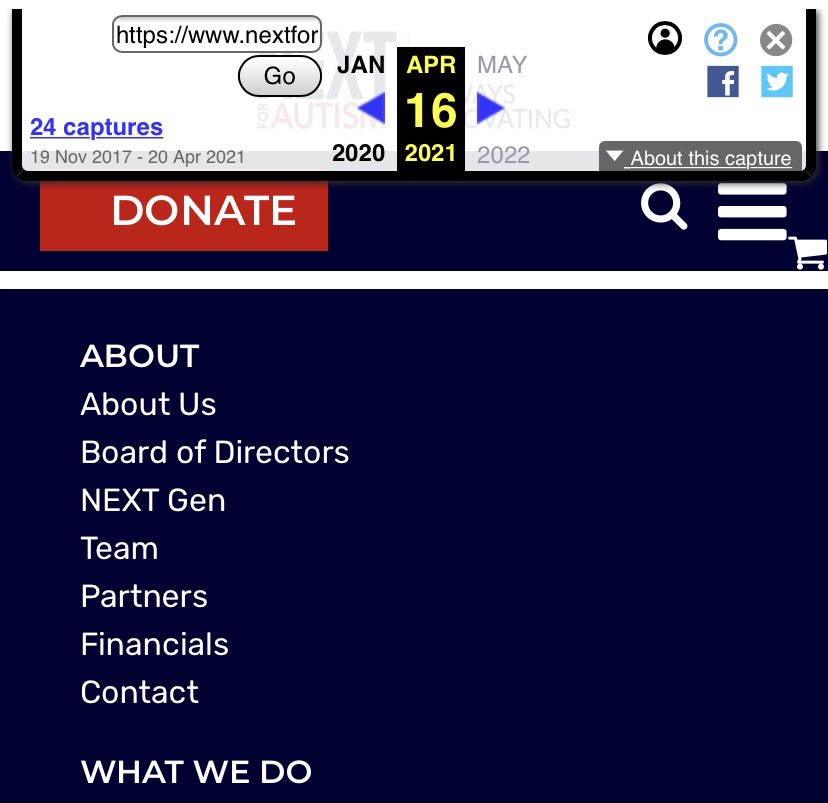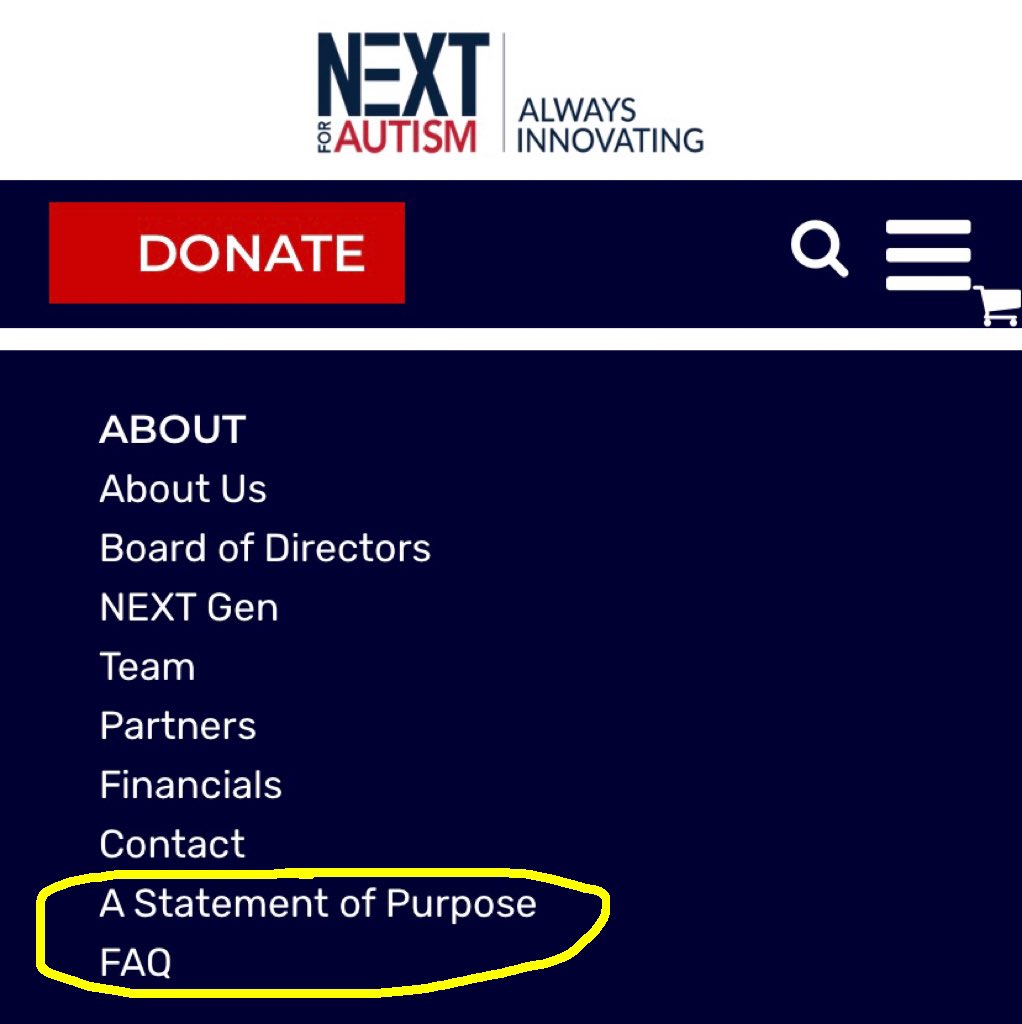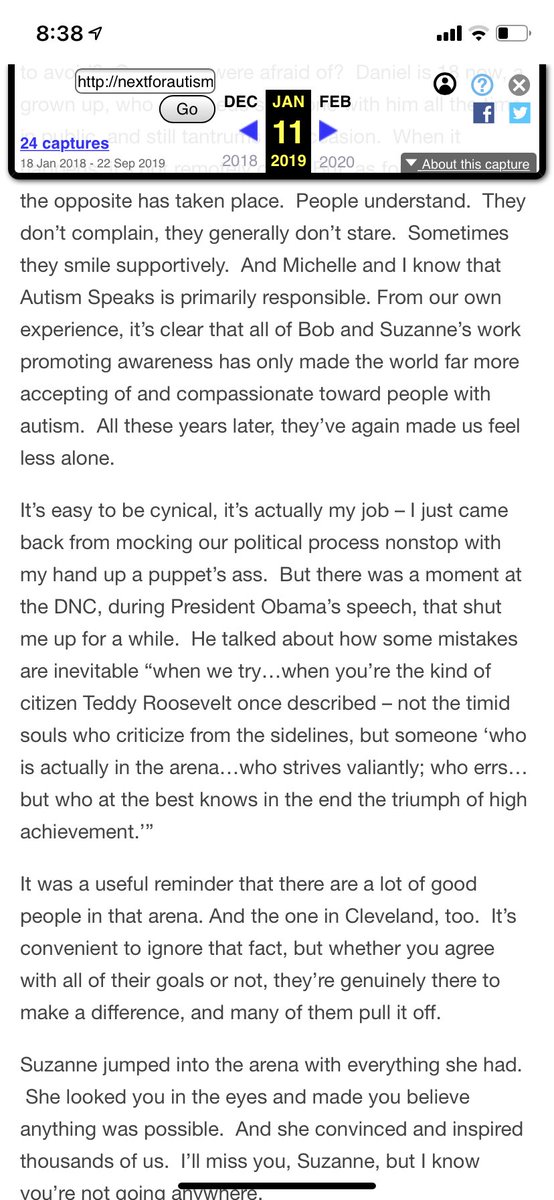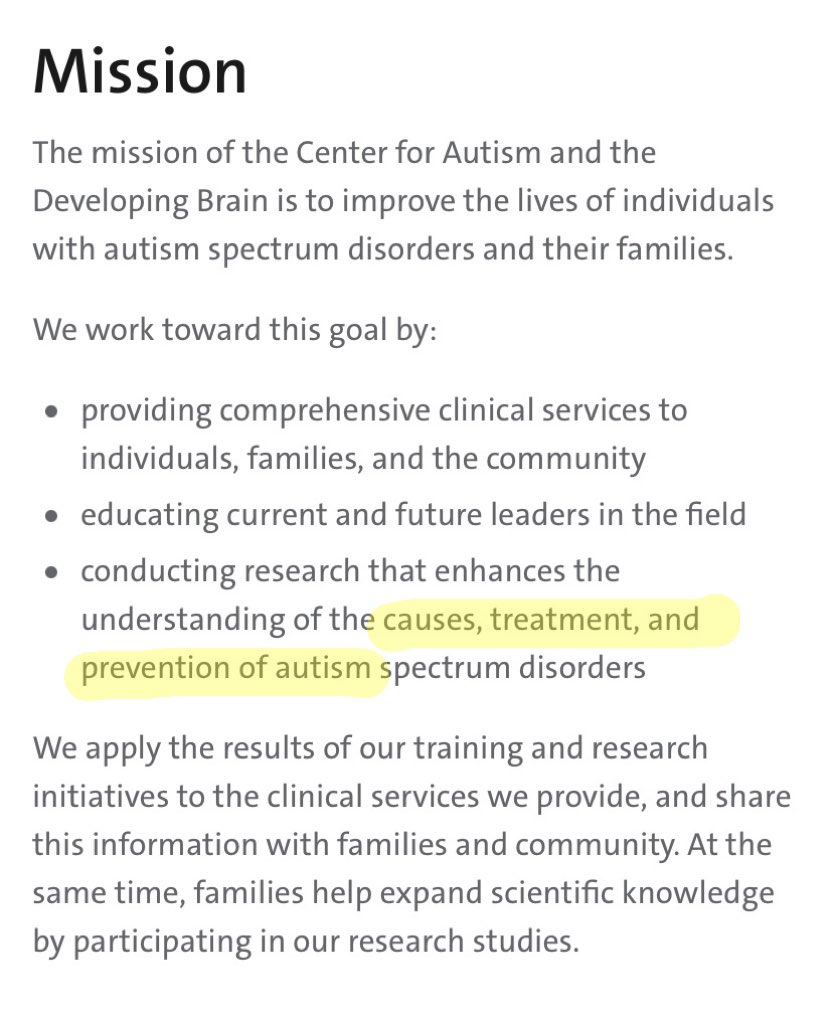
I’ve been thinking about how mainstream “autism advocacy” groups operate differently than organizations like the United Spinal Association.
Autism Speaks et al. rely on fear and search for “causes & treatments” whereas United Spinal is disability rights & advocacy oriented.
Autism Speaks et al. rely on fear and search for “causes & treatments” whereas United Spinal is disability rights & advocacy oriented.
When you search “autism foundation,” Autism Speaks is the first search result.
When you search “spinal cord injury foundation,” United Spinal Association is the first result.
I’m comparing the two because they are both disability-focused organizations. So, let’s look at them.
When you search “spinal cord injury foundation,” United Spinal Association is the first result.
I’m comparing the two because they are both disability-focused organizations. So, let’s look at them.
First, let’s look at United Spinal. Here’s their mission statement.
The majority of their members & leadership (including the CEO) have spinal cord injuries themselves- as you can see in the photo.
The majority of their members & leadership (including the CEO) have spinal cord injuries themselves- as you can see in the photo.
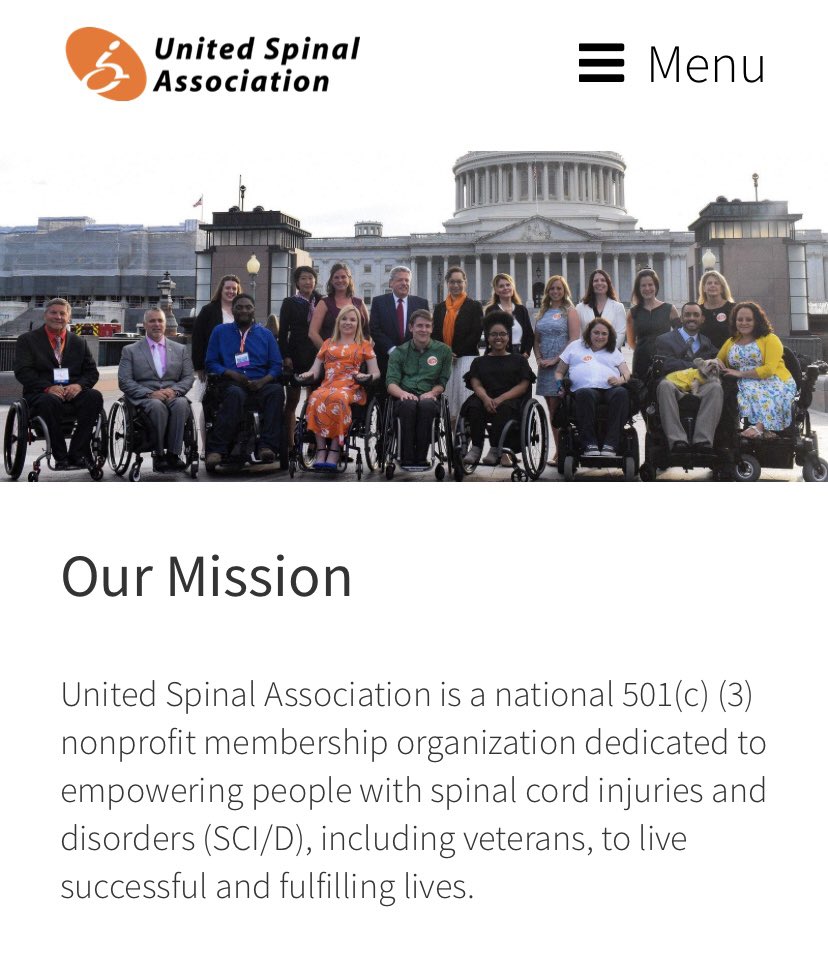
United Spinal is focused on empowerment, self-advocacy, human rights, and access to supports.
Notice that they aren’t focused on treatments, cures, the economic cost of disability, etc.
Notice that they aren’t focused on treatments, cures, the economic cost of disability, etc.
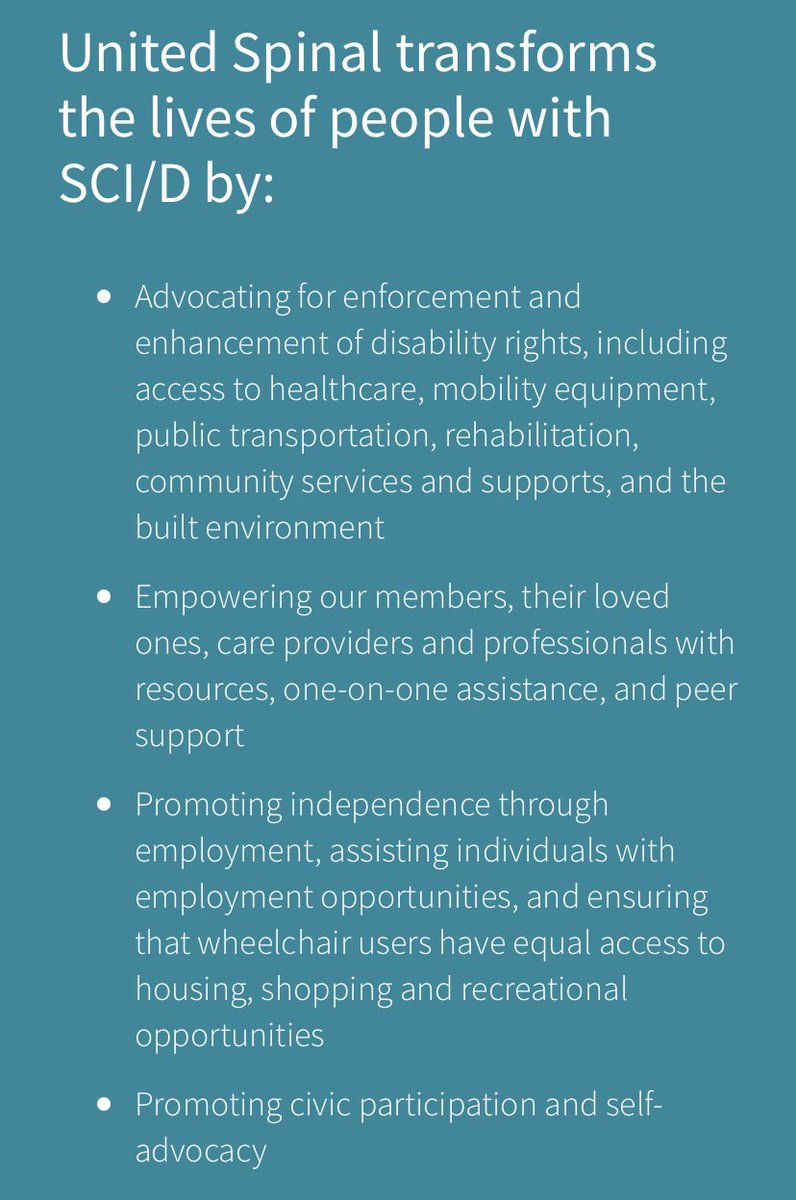
Autism Speaks, on the other hand, is not run by autistic people. AS currently has only one autistic person on their board of directors.
Many of the board members are former (or current) heads of corporations, investment firms, etc.
And what do they focus on?



Many of the board members are former (or current) heads of corporations, investment firms, etc.
And what do they focus on?
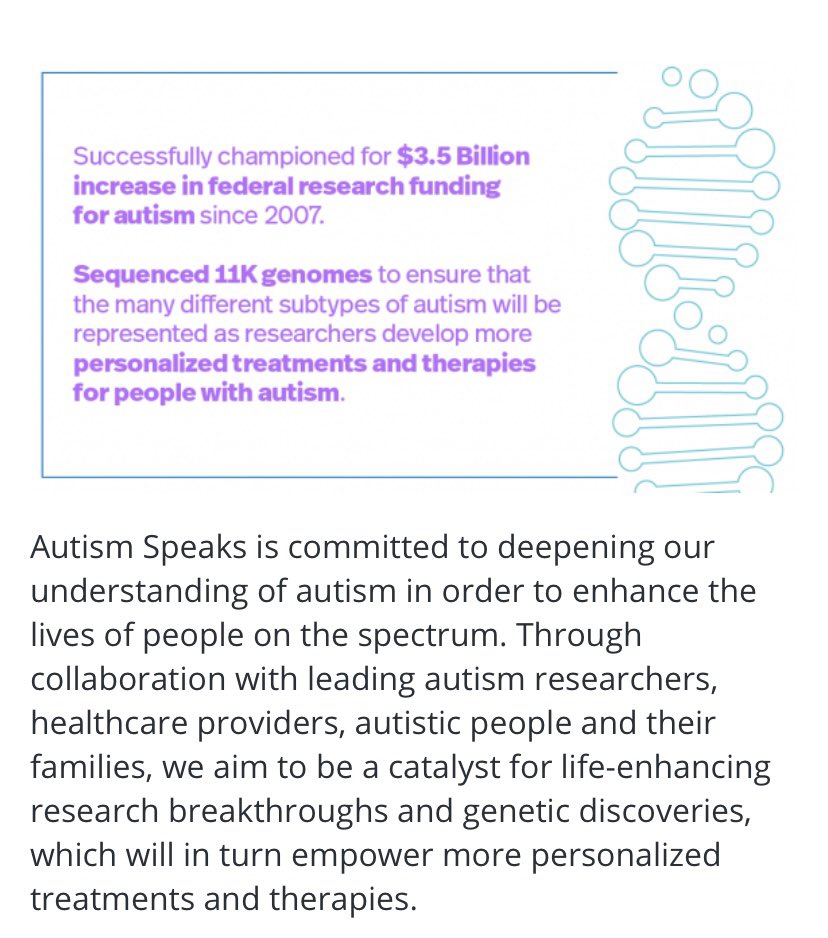
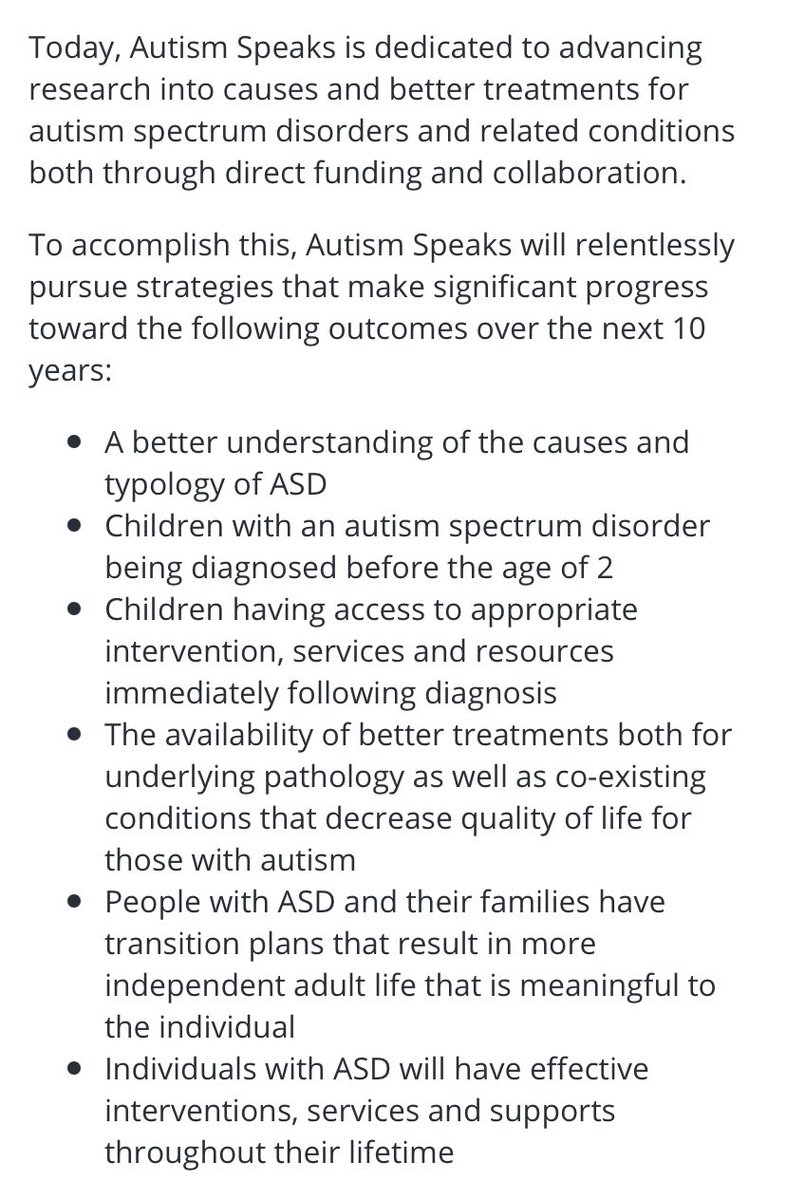
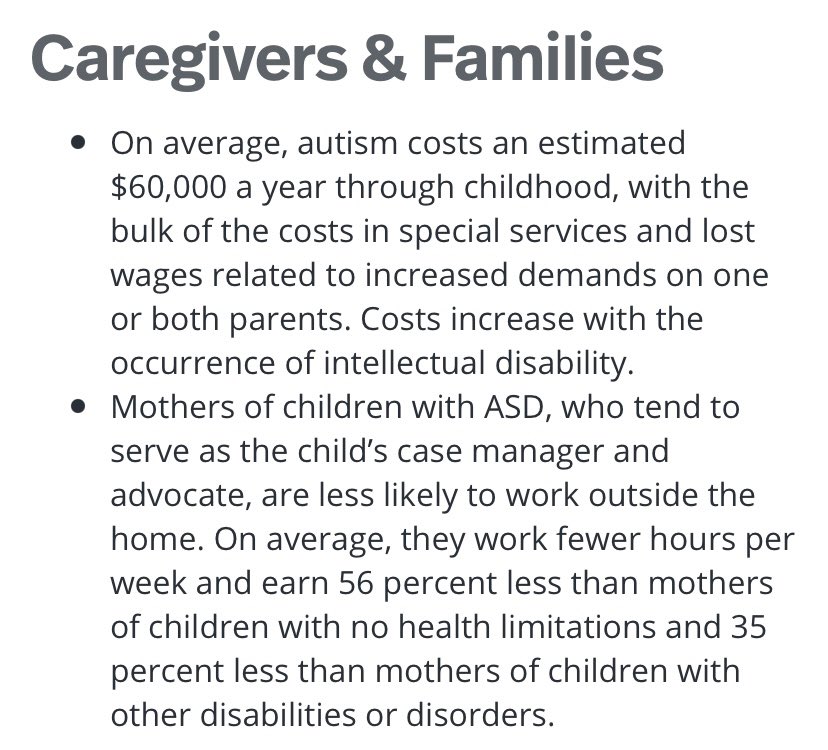
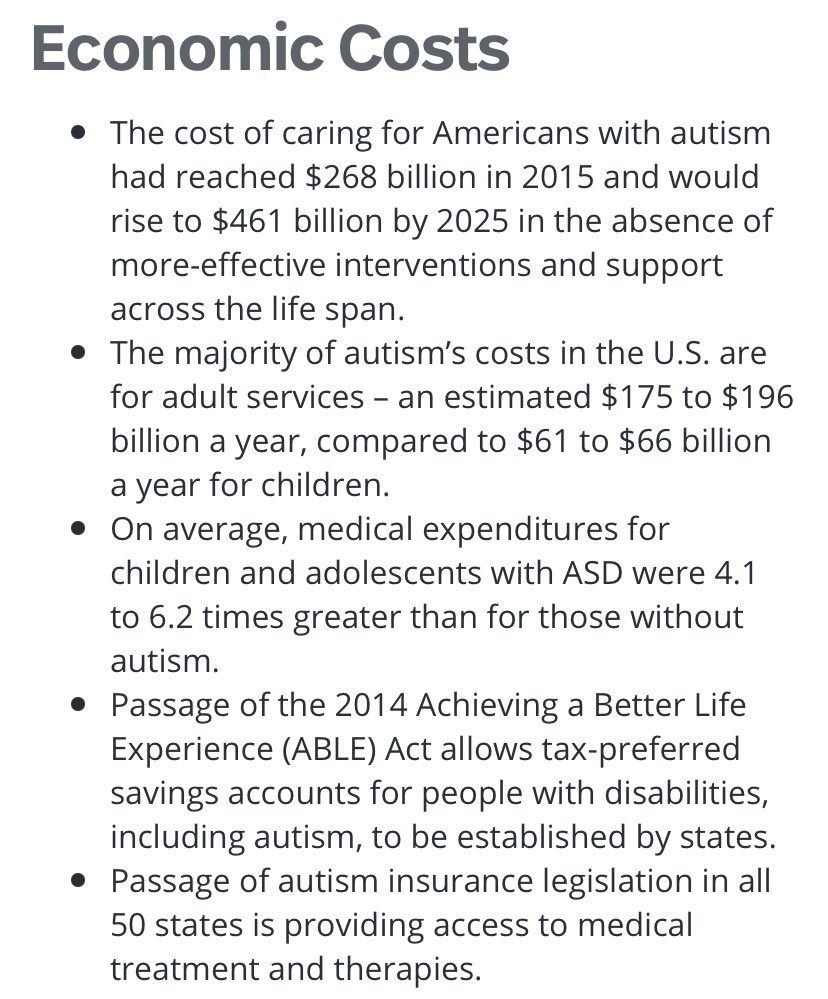
They focus on finding “autism genes” (so that they can edit or modify autistic people’s genes to make us non-autistic), “treatments,” & highlighting the economic cost of autistic people’s existence.
There is no mention of self-advocacy on any of the main tabs of their website.
There is no mention of self-advocacy on any of the main tabs of their website.
Why is this discrepancy so large?
I believe it’s because autism is a uniquely social condition.
By our very nature, autistic people force others to question what it means to be human and why they put so much emphasis on certain things (like eye contact, or enjoying parties).
I believe it’s because autism is a uniquely social condition.
By our very nature, autistic people force others to question what it means to be human and why they put so much emphasis on certain things (like eye contact, or enjoying parties).
Because autistic people are viewed as “inadequately social,” we are therefore viewed as “inadequately human” in the most basic, fundamental sense.
So, self-appointed “real humans” believe not only that the way we are is wrong, but that we can’t speak or advocate for ourselves.
So, self-appointed “real humans” believe not only that the way we are is wrong, but that we can’t speak or advocate for ourselves.
Communication, self-awareness, political opinions, understanding of others, etc. are all things that autistic people are supposed to inherently lack because of “social deficits.”
Those are all key self-advocacy and organizing skills, which people think we aren’t capable of.
Those are all key self-advocacy and organizing skills, which people think we aren’t capable of.
The fact that so many autistic self-advocates exist is enough to shatter the belief that autistic people are socially “deficient.”
Yet, we are ignored and spoken over by non-autistic people and organizations who wish to maintain that myth in service to their own egos.
Yet, we are ignored and spoken over by non-autistic people and organizations who wish to maintain that myth in service to their own egos.
• • •
Missing some Tweet in this thread? You can try to
force a refresh

